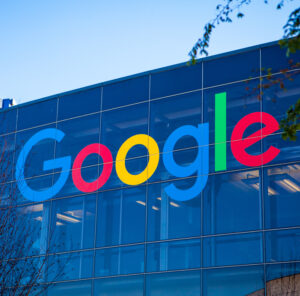Here’s today’s AdExchanger.com news round-up… Want it by email? Sign up here.
The Blackest Box
The name “Meta Advantage+” might confuse you into thinking Facebook has a streaming service. But the company is just following in Google’s footsteps.
Google launched Performance Max, a black box within a walled garden, late last year to replace Google Smart Shopping campaigns.
Advantage+ Shopping, Meta’s new solution for DTC and ecommerce sellers, is said to be a hit performance driver and takes a similar approach to Performance Max, which puts a retailer’s product catalog, creative and targeting parameters into the Google machine. Google then finds customers across Gmail, Maps, Search, YouTube and the Google ad network. Mobile Dev Memo has a good breakdown.
Brands must balance attribution reports against their own campaign control. Some Instagram brands, for example, explicitly don’t advertise on Facebook. Advantage+ Shopping campaigns don’t give advertisers the ability to exclude inventory.
But Performance Max now has a few exclusion controls. Gmail ads, for instance, can easily be mistaken as email marketing and enrage customers who believe a brand has emailed them without consent and without an option to unsubscribe.
Even so, neither Performance Max or Advantage+ break out inventory results. That means advertisers don’t know whether YouTube worked and search didn’t, say, or whether Instagram drove sales over Facebook.
The Magic Kingdo … I Mean Content Fortress
Disney is considering a membership program for customers that would offer perks and discounts across its parks and services, The Wall Street Journal reports.
The main goal, at the beginning, at least, will be to cross-sell Disney content, merchandise and services.
Someone who rides the Incredible Hulk Coaster, for example, might be more likely to see a recommendation on Disney+ for the new She-Hulk movie than, say, “Frozen 2.”
It’s a data play. The more Disney can learn about its customers and subscribers through a centralized data hub, the more it can serve relevant ads that hopefully drive conversions.
Disney does already have a “superfan” club, which is more like an annual VIP pass for certain events and merchandise. The potential new program (just don’t call it Disney prime) would aim for broader audiences.
And Disney wouldn’t be the only streamer with ecommerce bundles. Paramount just announced an integration with Walmart that includes a Paramount+ subscription with a Walmart annual membership. It’s called … Walmart+. (Creativity abounds.)
Apple Seeds
Talk about adding insult to injury.
Having decimated cross-app mobile advertising platforms and invested heavily in its own ad business, which isn’t bound by the same privacy standards, Apple is now poaching ad tech talent from the same companies that are reeling from ATT (namely, Facebook and Instagram), MarketWatch reports.
Many publishers, ecommerce companies and ad tech companies understand Meta’s frustration with Apple – because they’ve been dealing with Facebook’s shenanigans for years. Facebook has a well-earned reputation for copycatting competitors and messing with companies that have built their businesses on its platform.
“I guess what goes around comes around,” says Zach Goldner, a forecasting analyst at Insider Intelligence. “I mean, it’s not like Facebook hasn’t copied other platforms before.”
Mobile analyst Eric Seufert says ad revenue is almost incidental to Apple. ATT is more about a power play.
“Ads are a revenue opportunity, but, more importantly, they’re a discovery mechanic,” he tells MarketWatch. “And suddenly Facebook was determining which apps got downloaded, not Apple. My sense with all this is that they care about the revenue, but I don’t think that was the primary driver.”
But Wait, There’s More!
OneSignal, a mobile messaging startup, raises $50 million. [TechCrunch]
Instacart acquires Eversight, a pricing and promotions tech provider for retail and CPG. [release]
WPP acquires ecommerce consultancy Newcraft. [release]
Google isn’t done rolling out the Helpful Content Update. [Search Engine Roundtable]
Reddit acquires the audience contextualization tech Spiketrap. [release]
The People’s Republic of Shein. [NYT]
Are free-to-play games dying out? [Variety]

















